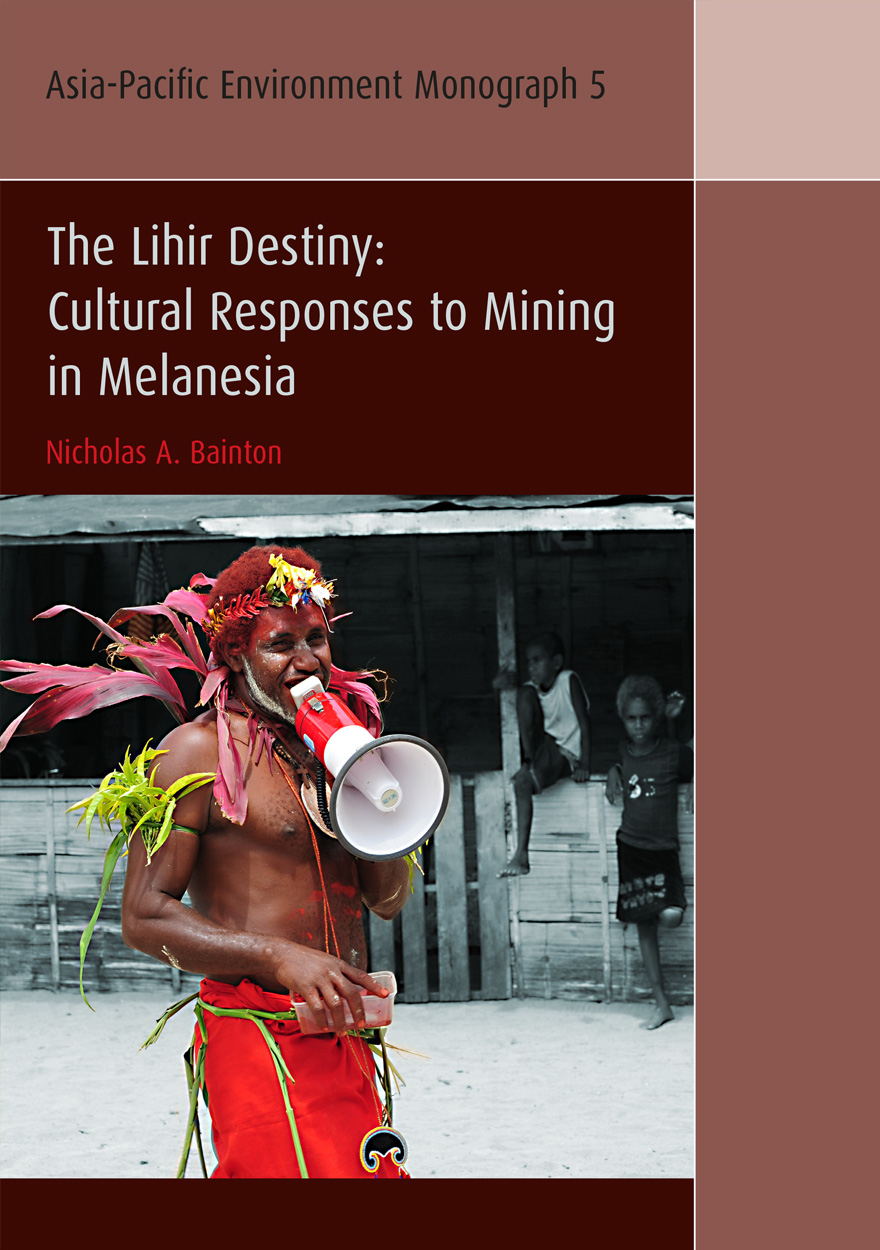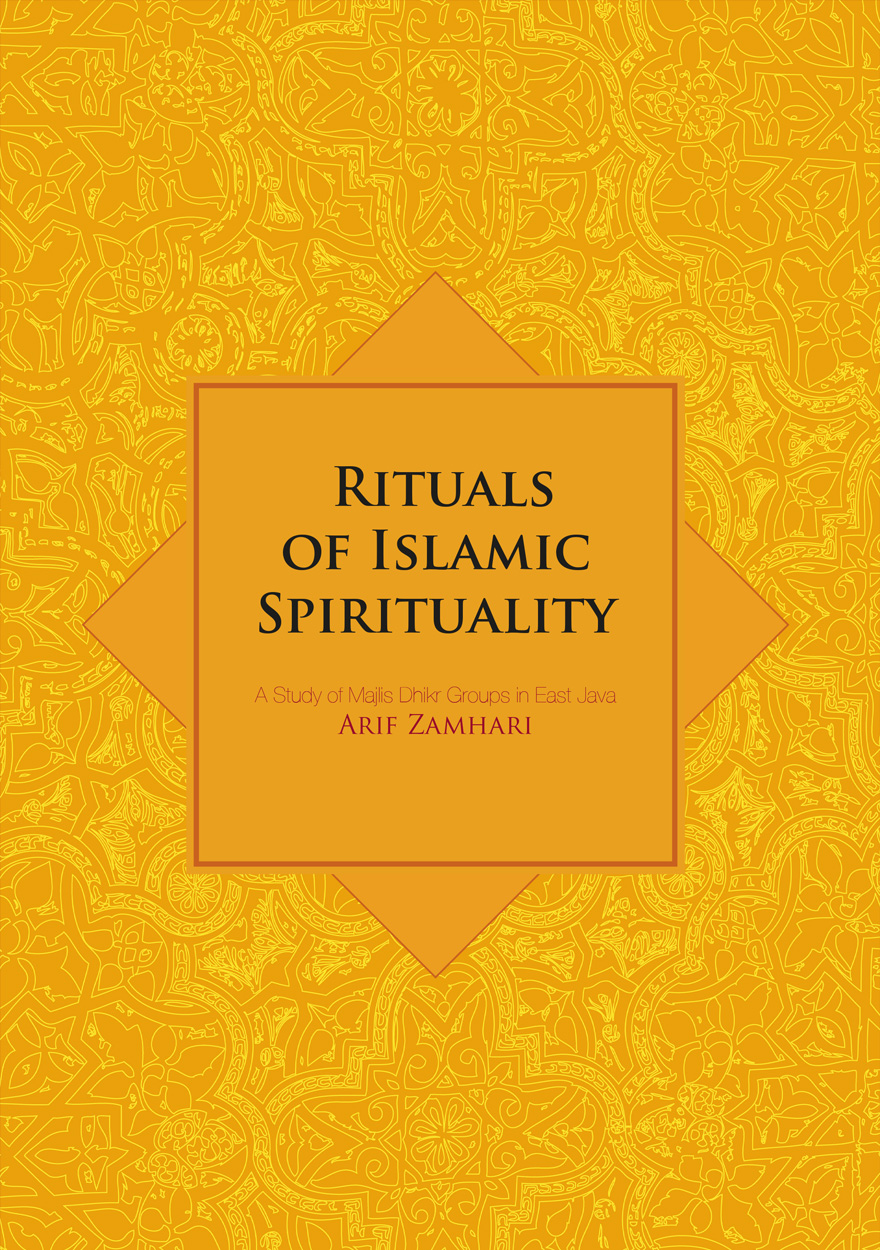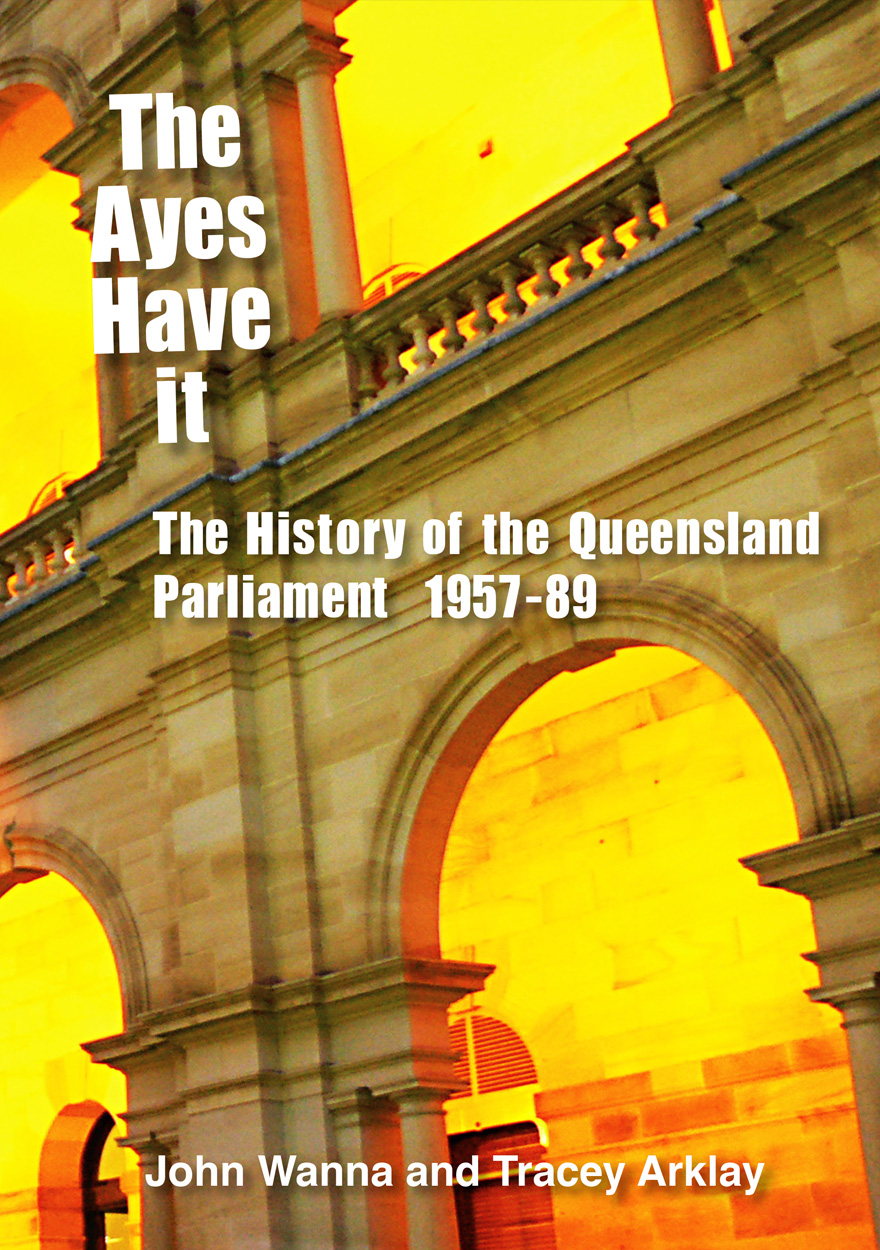Search titles
Displaying results 451 to 460 of 628.

The Lihir Destiny »
Cultural Responses to Mining in Melanesia
Authored by: Nicholas A. Bainton
Publication date: October 2010
The people of the Lihir Islands in Papua New Guinea have long held visions of a prosperous new future, often referred to by local leaders as the ‘Lihir Destiny’. When large-scale gold mining activities commenced on the main island of Lihir in 1995, many hoped that this new world had finally arrived. The Lihir Destiny provides a nuanced account of the social structural and cultural transformations engendered by large-scale resource extraction. Tracing the history of Lihirian engagement with outside forces, from the colonial period through to recent mining activities, this book brings new light to bear on the bigger question of what ‘development’ means in contemporary Melanesia. The Lihir Destiny explores how Lihirian leaders devised future plans for a cultural revolution based upon the maximisation of mining activities and the influential philosophies of the Personal Viability movement. However, reaching the ‘Lihir Destiny’ is no simple affair, and many Lihirians find themselves negotiating divergent formulations of culture, sociality and economic engagement. The Lihir Destiny will appeal to readers interested in the social impacts of large-scale resource development, the processes of cultural continuity and change and the ways in which modernity is configured in local terms.

The Australian National University School of Art: A history of the first 65 years »
Authored by: Michael Agostino
Publication date: October 2010
The ANU School of Art has built an international reputation as a leader in visual arts, attracting staff and students from around Australia and the world. it has an active exhibition program; regular visits from distinguished national and international artists; overseas student exchange; open art access classes and co-operative arrangements with many other areas of ANU research and teaching. This volume presents the history of the ANU School of Art, from its humble beginnings as part of the Canberra Technical College in Kingston, to its evolution to stand on the world stage as part of one of Australia's top ranked universities playing an important role in the teaching of research of Australian visual arts, crafts and design.
Hard copies of this book are available through the ANU School of Art.
Download for free
Not available for purchase

Humanities Research: Volume XVI. No. 2. 2010 »
Key Thinkers and Their Contemporary Legacy
Edited by: Ned Curthoys
Publication date: October 2010
Humanities Research is an internationally peer-reviewed journal published by the Research School of Humanities at The Australian National University. The Research School of Humanities came into existence in January 2007 and consists of the Humanities Research Centre, Centre for Cross-Cultural Research, National Europe Centre and Australian National Dictionary Centre. Launched in 1997, issues are thematic with guest editors and address important and timely topics across all branches of the humanities.
Download for free
Not available for purchase

Public Policy »
Why ethics matters
Publication date: October 2010
Ethics is a vigorously contested field. There are many competing moral frameworks, and different views about how normative considerations should inform the art and craft of governmental policy making. What is not in dispute, however, is that ethics matters. The ethical framework adopted by policy analysts and decision makers not only shapes how policy problems are defined, framed and analysed, but also influences which ethical principles and values are taken into account and their weighting. As a result, ethics can have a profound impact, both on the character of the policy process and the choices made by decision makers.
Public Policy – Why Ethics Matters brings together original contributions from leading scholars and practitioners with expertise in various academic disciplines, including economics, philosophy, physics, political science, public policy and theology. The volume addresses three main issues: fist, the ethical considerations that should inform the conduct of public officials and the task of policy analysis; second, the ethics of climate change; and third, ethics and economic policy. While the contributors have varying views on these important issues, they share a common conviction that the ethical dimensions of public policy need to be better understood and given proper attention in the policy-making process.

Passionate Histories »
Myth, memory and Indigenous Australia
Publication date: September 2010
This book examines the emotional engagements of both Indigenous and Non-Indigenous people with Indigenous history. The contributors are a mix of Indigenous and Non-Indigenous scholars, who in different ways examine how the past lives on in the present, as myth, memory, and history. Each chapter throws fresh light on an aspect of history-making by or about Indigenous people, such as the extent of massacres on the frontier, the myth of Aboriginal male idleness, the controversy over Flynn of the Inland, the meaning of the Referendum of 1967, and the policy and practice of Indigenous child removal.
For more information on Aboriginal History Inc. please visit aboriginalhistory.org.au.

Reconciliation and Architectures of Commitment »
Sequencing peace in Bougainville
Authored by: John Braithwaite, Hilary Charlesworth, Peter Reddy, Leah Dunn
Publication date: September 2010
Following a bloody civil war, peace consolidated slowly and sequentially in Bougainville. That sequence was of both a top-down architecture of credible commitment in a formal peace process and layer upon layer of bottom-up reconciliation. Reconciliation was based on indigenous traditions of peacemaking. It also drew on Christian traditions of reconciliation, on training in restorative justice principles and on innovation in womens’ peacebuilding. Peacekeepers opened safe spaces for reconciliation, but it was locals who shaped and owned the peace. There is much to learn from this distinctively indigenous peace architecture. It is a far cry from the norms of a ‘liberal peace’ or a ‘realist peace’. The authors describe it as a hybrid ‘restorative peace’ in which ‘mothers of the land’ and then male combatants linked arms in creative ways. A danger to Bougainville’s peace is weakness of international commitment to honour the result of a forthcoming independence referendum that is one central plank of the peace deal.

Sex Discrimination in Uncertain Times »
Edited by: Margaret Thornton
Publication date: September 2010
This collection of essays arose from a conference held to mark the silver anniversary of the Australian Sex Discrimination Act (1984). The collection has two aims: first; to honour the contributions of both the spirited individuals who valiantly fought for the enactment of the legislation against the odds, and those who championed the new law once it was passed; secondly, to present a stock-take of the Act within the changed socio-political environment of the 21st century.
The contributors present clear-eyed appraisals of the legislation, in addition to considering new forms of legal regulation, such as Equality Act, and the significance of a Human Rights Act. The introduction of a proactive model, which would impose positive duties on organisations, is explored as an alternative to the existing individual complaint-based model of legislation. The contributors also pay attention to the international human rights framework, particularly the Convention on the Elimination of all Forms of Discrimination against Women and the UN Declaration on the Rights of Indigenous People. The essays are illuminated by recourse to a rich vein of historical and contemporary literature. Regard is also paid to the comparative experience of other jurisdictions, particularly the UK and Canada.

Soeharto's New Order and Its Legacy »
Essays in honour of Harold Crouch
Edited by: Edward Aspinall, Greg Fealy
Publication date: August 2010
Indonesia’s President Soeharto led one of the most durable and effective authoritarian regimes of the second half of the twentieth century. Yet his rule ended in ignominy, and much of the turbulence and corruption of the subsequent years was blamed on his legacy. More than a decade after Soeharto’s resignation, Indonesia is a consolidating democracy and the time has come to reconsider the place of his regime in modern Indonesian history, and its lasting impact. This book begins this task by bringing together a collection of leading experts on Indonesia to examine Soeharto and his legacy from diverse perspectives. In presenting their analyses, these authors pay tribute to Harold Crouch, an Australian political scientist who remains one of the greatest chroniclers of the Soeharto regime and its aftermath.

Rituals of Islamic Spirituality »
A Study of Majlis Dhikr Groups in East Java
Authored by: Arif Zamhari
Publication date: July 2010
This study examines the emergence of new forms of Islamic spirituality in Indonesia identified as Majlis Dhikr. These Majlis Dhikr groups have proliferated on Java in the last two decades, both in urban and rural areas, and have attracted followers from a wide social background. The diverse aspects of these Majlis Dhikr groups – their rituals, teachings and strategies of dissemination as well as the popular understanding of these rituals and their contestation by critics and opponents – are examined in detail and illustrated by reference to three particular groups – Salawat Wahidiyat, Istighathat Ihsaniyyat and Dhikr al-Ghafilin each of which has its own distinctive features and notable religious leadership. These Majlis Dhikr groups regard their activities as legitimate ritual practices that are in accordance with the legacy of Islamic Sufism based on the interpretation of the Qur’anic and Prophetic tradition.

The Ayes Have It »
The history of the Queensland Parliament, 1957–1989
Authored by: John Wanna, Tracey Arklay
Publication date: July 2010
‘The Ayes Have It’ is a fascinating account of the Queensland Parliament during three decades of high-drama politics. It examines in detail the Queensland Parliament from the days of the ‘Labor split’ in the 1950s, through the conservative governments of Frank Nicklin, John Bjelke- Petersen and Mike Ahern, to the fall of the Nationals government led briefly by Russell Cooper in December 1989. The volume traces the rough and tumble of parliamentary politics in the frontier state. The authors focus on parliament as a political forum, on the representatives and personalities that made up the institution over this period, on the priorities and political agendas that were pursued, and the increasingly contentious practices used to control parliamentary proceedings. Throughout the entire history are woven other controversies that repeatedly recur – controversies over state economic development, the provision of government services, industrial disputation and government reactions, electoral zoning and disputes over malapportionment, the impost of taxation in the ‘low tax state’, encroachments on civil liberties and political protests, the perennial topic of censorship, as well as the emerging issues of integrity, concerns about conflicts of interest and the slide towards corruption. There are fights with the federal government – especially with the Whitlam government – and internal fights within the governing coalition which eventually leads to its collapse in 1983, after which the Nationals manage to govern alone for two very tumultuous terms. On the non-government side, the bitterness of the 1950s split was reflected in the early parliaments of this period, and while the Australian Labor Party eventually saw off its rivalrous off-shoot (the QLP-DLP) it then began to implode through waves of internal factional discord.



